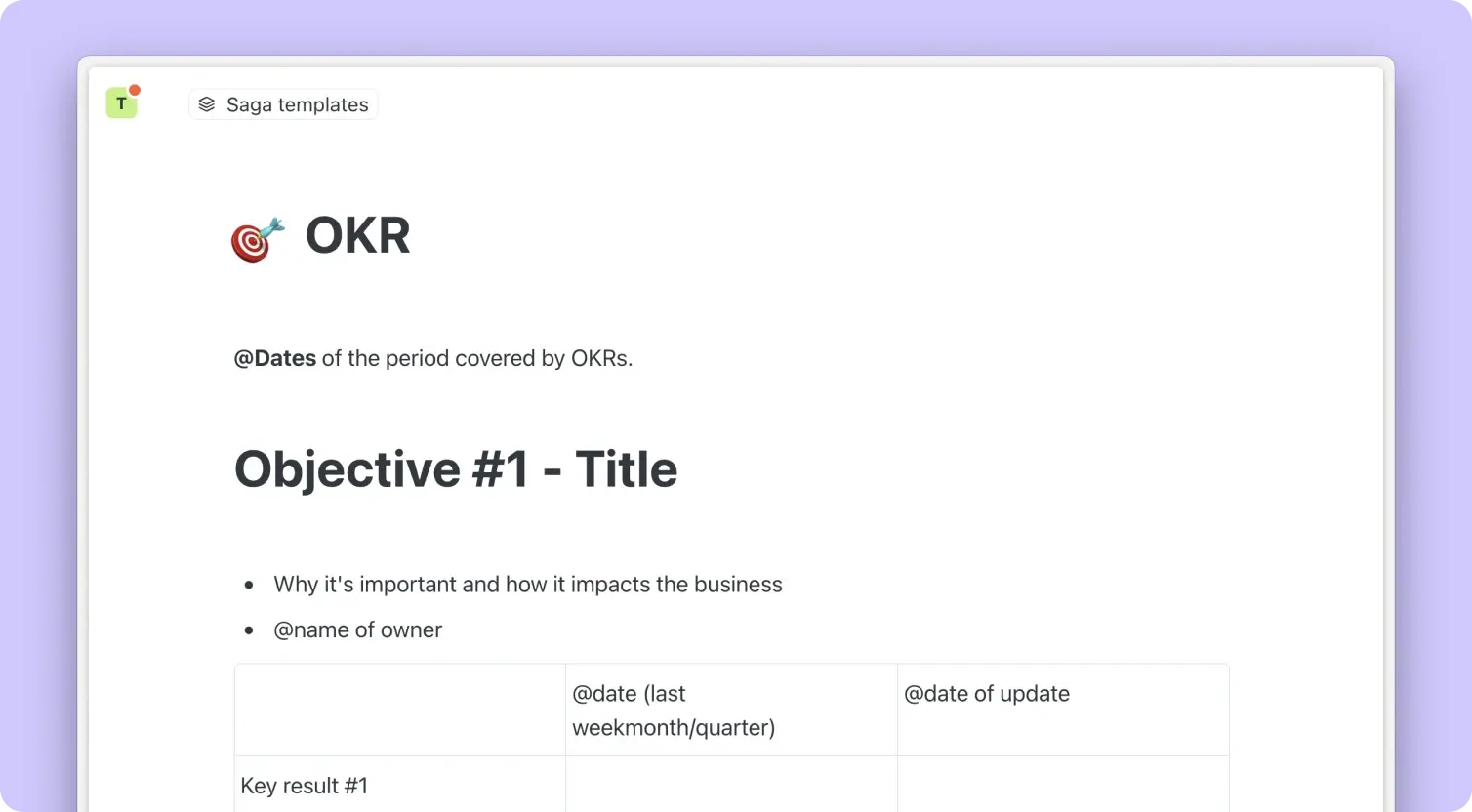OKR template

What is an OKR?
An OKR (Objectives and Key Results) is a goal-setting framework used by teams and individuals to define measurable goals and track their outcomes. It consists of an Objective, a clearly defined goal, and Key Results, specific measures used to track the achievement of that goal. The purpose of OKRs is to create alignment and engagement around measurable and ambitious goals.
OKRs help in focusing efforts on significant, concrete, and actionable metrics. They encourage transparency and accountability by making objectives and their outcomes visible to all team members, thereby fostering a culture of achievement and continuous improvement, as well as a cadence for executing and showing results.
Implementing OKRs facilitates clear communication of what is important, empowers teams to measure their progress, and aligns their efforts towards the company’s strategic goals in a regular manner.
Why do OKRs?
Adopting OKRs offers numerous benefits, including enhanced focus by narrowing down on what truly matters. This clarity helps in prioritizing tasks and resources efficiently.
OKRs also promote alignment and engagement. By connecting team and individual goals to the company’s strategic objectives, everyone understands how their work contributes to the bigger picture, increasing motivation and commitment.
Furthermore, the measurable nature of OKRs facilitates tracking progress and performance, enabling quick adjustments and fostering a culture of accountability and continuous improvement.
Lastly, OKRs encourage ambition and innovation by setting challenging yet achievable goals, pushing teams to explore new ways to achieve outstanding results.
How to write OKRs?
Writing effective OKRs involves identifying clear, actionable, and ambitious objectives that align with your strategic goals. Start by defining broad qualitative objectives that you aim to achieve, as well as a cadence for reviewing achievements and potentially updating these objectives.
Next, for each objective, set quantifiable key results. These should be specific, measurable outcomes that, when achieved, will signify the objective’s completion. Ensure that key results are challenging yet realistic, providing a clear benchmark for success.
Engage your team in the OKR planning process to ensure buy-in and alignment. Discuss and refine your OKRs together, making sure they are understood and accepted by all members.
Conclude by reviewing your OKRs regularly, adjusting as necessary to reflect changes in priorities or to address any challenges that arise. Remember, the goal is progress towards ambitious targets, not just ticking off tasks.
Free template for OKRs
To assist you in setting and achieving your OKRs, access our free template. It’s structured to guide you through defining clear objectives and measurable key results, making it easier for you and your team to focus on what’s most important and to track your progress effectively.
Get started
Then click on "Copy Page" to duplicate it in your workspace.


